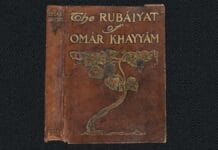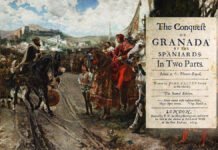Kurukshetram is one of the most powerful and thought-provoking poems by Dr K Ayyappa Panikar, a celebrated Malayalam poet, critic, and literary scholar. Written in the backdrop of contemporary socio-political turmoil, the poem draws its inspiration from the great Indian epic, the Mahabharata, and particularly from the Kurukshetra war, which symbolises the eternal conflict between dharma (righteousness) and adharma (unrighteousness).
However, Panikar does not simply retell the Mahabharata; instead, he reinterprets it through a modern lens, using the Kurukshetra war as an extended allegory for modern conflicts, violence, and moral dilemmas. The poem transcends historical mythology and becomes a critique of the human condition, political power struggles, and the moral corruption of contemporary society.
Through rich imagery, allusions, and an ironic tone, Kurukshetram presents a meditative and critical reflection on war, power, human greed, and the loss of ethical values. The poem questions whether war ever ends or whether humanity is doomed to repeat the same cycle of destruction and suffering.
Summary
Setting and Theme of War
The poem is set on the battlefield of Kurukshetra, a site of one of the most legendary wars in Indian mythology. However, rather than focusing solely on the historical and mythological aspects of the war, Panikar’s poem uses it as a universal metaphor for human conflict. The battlefield is not just a geographical location but a symbol of the perpetual struggles that plague humanity—political wars, ideological battles, and moral dilemmas that exist across time and space.
The Inevitable Fate of War
From the very beginning, the poem establishes the inevitability of war. The war, once started, cannot be stopped—it follows a predetermined path that leads to destruction, loss, and suffering. The warriors, bound by their duty and fate, must engage in the battle, even if they are reluctant. The poem reflects on the cyclical nature of violence, where war does not bring peace but only sets the stage for future conflicts.
Panikar alludes to the Mahabharata’s Bhagavad Gita, where Lord Krishna advises Arjuna to fulfil his dharma as a warrior. However, unlike the original text, where Krishna’s message provides spiritual and moral clarity, Panikar’s tone is ironic. The justification of war in the name of duty is questioned—does duty truly absolve one of guilt, or is it simply an excuse for destruction?
The Brutality and Absurdity of War
The poem vividly describes the bloodshed, chaos, and devastation of Kurukshetra. The bodies of soldiers lie scattered across the battlefield, their lives reduced to meaningless sacrifices for political and personal ambitions. The poem does not glorify war; instead, it presents its ugliness and brutality, forcing the reader to confront the horrific cost of human ambition and power struggles.
Panikar also incorporates dark irony and satire, questioning whether war ever leads to true victory. The victors of war often inherit a world of ruin, and the defeated are left with nothing but suffering and loss. The poem subtly critiques the political systems and leaders manipulating people into fighting wars, leaving them abandoned and broken.
Moral Ambiguity and the Loss of Ethics
One of the most striking aspects of Kurukshetram is its portrayal of moral ambiguity. In the Mahabharata, the battle of Kurukshetra is often depicted as a war between good and evil, where the Pandavas represent righteousness, and the Kauravas represent evil. However, Panikar destabilises this simplistic binary, suggesting that war corrupts all who participate.
Even those who believe they are fighting for justice eventually become complicit in violence and destruction. The poem suggests that there are no true winners in war—everyone, whether victorious or defeated, loses their humanity in the process.
Modern Parallels and Political Commentary
Although the poem is set in a mythological context, it is deeply relevant to contemporary political and social conflicts. Panikar subtly draws parallels between mythological war and modern warfare, suggesting that the cycle of violence has continued across centuries—whether in colonialism, world wars, communal riots, or political power struggles.
The poem critiques the leaders and ideologies that justify violence in the name of nationalism, religion, or ideology. Panikar suggests that those who claim to fight for a cause often become as destructive as those they oppose, leading to endless cycles of revenge, destruction, and moral decay.
Use of Myth as Allegory
One of the most remarkable aspects of Kurukshetram is Panikar’s use of the Mahabharata as an allegory for contemporary issues. Rather than merely retelling the epic, he reinterprets it to explore universal questions about war, morality, and human nature. The battle of Kurukshetra becomes a metaphor for all human conflicts, making the poem timeless and universally relevant.
By using a familiar mythological framework, Panikar is able to engage readers on multiple levels—intellectually, emotionally, and philosophically. He forces the reader to question traditional interpretations of dharma (duty), righteousness, and the justification of violence.
Irony and Satire in the Narrative
Ayyappa Panikar is known for his sharp irony and subtle satire, which are both evident in Kurukshetram. The poem does not celebrate war heroism; instead, it mocks the absurdity of human violence. There is an underlying tone of cynicism and disillusionment, as the poet suggests that humanity has learned nothing from history.
This irony is evident in the depiction of duty and righteousness. The characters in the Mahabharata justify their actions based on their roles and responsibilities, but the poet questions whether duty can truly justify mass killings and destruction. The poem presents a moral paradox—can violence ever be justified, even when it is carried out for a supposedly righteous cause?
Symbolism and Imagery
Panikar’s vivid imagery enhances the dramatic and emotional impact of the poem. The battlefield is described in grotesque detail—blood-soaked land, decaying bodies, and cries of the wounded—forcing the reader to confront the grim reality of war.
The imagery is not just physical but also psychological. The warriors experience inner turmoil, doubt, and existential dread, symbolising the universal human conflict between morality and survival. The sky, land, and elements are often personified, reflecting the emotional and philosophical weight of the war.
Philosophical Depth and Existential Questions
At its core, Kurukshetram is a deeply philosophical and existential poem. It does not provide easy answers but raises questions about fate, free will, power, and ethics. The poem challenges the reader to rethink the nature of history, power, and the repetitive cycles of violence that define human civilisation.
It suggests that war is not just an external battle but also an internal struggle where individuals must constantly question their actions, beliefs, and responsibilities. This philosophical depth makes Kurukshetram a profound and intellectually stimulating work.
Ayyappa Panikar’s Kurukshetram is a masterpiece of modern Malayalam poetry, combining mythology, political critique, irony, and deep philosophical reflection. By reinterpreting the Mahabharata‘s Kurukshetra war, Panikar creates a universal allegory for all human conflicts, forcing the reader to question the nature of war, morality, and human history.
The poem remains as relevant today as it was written, serving as a cautionary reflection on power, ambition, and the cost of violence. Through its rich symbolism, sharp irony, and deep existential questions, Kurukshetram continues to inspire and challenge readers across generations.






























